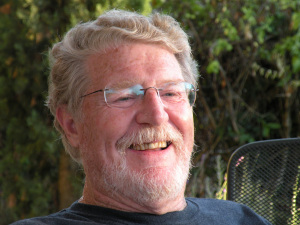China is acting the bully in the South China Sea, but it was President Bill Clinton who sparked the current tensions in the region when he deployed two aircraft carrier battle groups in the Taiwan Straits in 1995-96 during a tense standoff between Taipei and the mainland. China did not then -- and does not now -- have the capacity to invade Taiwan, so Beijing's threats were not real. But the aircraft carriers were very real, and they humiliated -- and scared -- China in its home waters. It was that incident that directly led to China's current accelerated military spending and its heavy-handed actions in the South China Sea.
Again, there is a long history here. Starting with the Opium Wars of 1839 and 1860, followed by the Sino-Japanese War of 1895 and Tokyo's invasion of China in World War II, the Chinese have been invaded and humiliated time and again. Beijing's view of the Obama administration's "Asia pivot" is that it is aimed at surrounding China with U.S. allies.
While that might be an over simplification -- the Pacific has long been America's largest market -- it is a perfectly rational conclusion to draw from the deployment of U.S. Marines to Australia, the positioning of nuclear-capable forces in Guam and Wake, the siting of anti-ballistic missile systems in South Korea and Japan, and the attempt to tighten military ties with India, Indonesia and Vietnam.
"If you are a strategic thinker in China, you don't have to be a paranoid conspiracy theorist to think that the U.S. is trying to bandwagon Asia against China," says Simon Tay, chair of the Singapore Institute of International Affairs.
As for Venezuela, the U.S. supported the 2002 coup against Hugo Chavez and has led a campaign of hostility against the government ever since. For all its problems, the Chavez government cut poverty rates from 70 percent of the population to 21 percent, and extreme poverty from 40 percent to 7.3 percent. Infant mortality fell from 25 per 1,000 to 13 per 1,000, the same as for Black Americans.
And the concern for the democratic rights of Venezuelans apparently doesn't extend to the people of Honduras. When a military coup overthrew a progressive government in 2009, the U.S. pressed other Latin American countries to recognize the illegal government that took over in its wake. While opposition forces in Venezuela get tear-gassed and a handful jailed, in Honduras they are murdered by death squads.
Power's view that the U.S. stands for virtue instead of simply pursuing its own interests is a uniquely American delusion. "This is an image that Americans have of themselves," says Jeremy Shapiro, research director of the European Council on Foreign Relations, "but is not shared, even by their allies."
The "division" between "realists" and R2P is an illusion. Both end up in the same place: confronting our supposed competitors and supporting our allies, regardless of how they treat their people. While she is quick to call the Russians in Syria "barbarous," she is conspicuously silent on the U.S.'s support for Saudi Arabia's air war in Yemen, which has targeted hospitals, markets and civilians.
The argument that another country's internal politics is a national security issue for the U.S. elevates R2P to a new level, sets the bar for military intervention a good deal lower than it is today, and lays the groundwork for an interventionist foreign policy that will make the Obama administration look positively pacifist.
(Note: You can view every article as one long page if you sign up as an Advocate Member, or higher).





